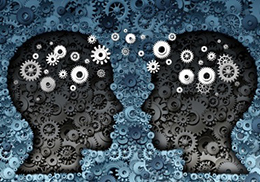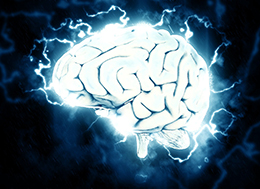.jpg)
In the new common policy framework of the World Health Organisation, in their Regional Committee for Europe, is included the objective for 2020 of “significantly improving population’s health and wellbeing”. According to Isabel Balaguer and Isabel Castillo, both teachers of the Faculty of Psychology of the Universitat de València, the interest of promoting human wellbeing, ultimate aim of Psychology, was reflected in numerous public acts, such as important speeches, deontological codes or scientific works.
19 july 2016
Human wellbeing has acquired great importance during the last years and this is the reason why researchers developed different methods of intervention in different contexts such as schools or sports environments. With their work, “Intervención en los contextos sociales para la promoción del bienestar y de los estilos de vida saludables” (Intervention in social contexts for the promotion of wellbeing and healthy lifestyles), the authors want to determine which factors have an influence on psychological wellbeing, to know the contemporary motivation theories that allow to develop that wellbeing, as well as to design and implement intervention programmes for the promotion of psychological health.
In order to achieve those objectives, Balaguer and Castillo start describing the main theories of wellbeing, that are the hedonic (subjective wellbeing or goals, Diener is the main theorist) and the eudaimonia theories (psychological wellbeing or self-realisation, its main theorists are Ryan, Deci and Rogers). From the first one we extract the conception of wellbeing as the achieving of pleasure, while from the second one we extract that the personal wellbeing is achieved through a good psychological functioning. The main indicators studied in the first theories are: positive and negative effects and the satisfaction with life; however, the most studied indicators in the second theory are the subjective vitality and self-esteem.
From the first one we extract the conception of wellbeing as the achieving of pleasure, while from the second one we extract that the personal wellbeing is achieved through a good psychological functioning
- Achievement Goal Theory: it has become one of the main motivational theories in the scholar and sports field. It defends that the importance people give to their achievement activities have an influence on motivational patterns while they are doing them. However, not everyone gets involved in the same way because not all interpret success the same way, it exists the implication in the task (the emphasis is on the effort and improvement) and the implication in the ego (focus their interest in proving that are better than the others).
It defends that the importance people give to their achievement activities have an influence on motivational patterns while they are doing them
- Self-determination Theory: It is about a theory composed by six mini theories developed by Deci and Ryan (Cognitive Evaluation Theory, Organismic Theory, Causation Orientations Theory, Basic Needs Theory, Meta Contents Theory, and Relationships Motivational Theory). These explain how human beings tend to personal growth and seek to feel competent in their environment. Thus, social contexts are important for the optimal development of people.
These explain how human beings tend to personal growth and seek to feel competent in their environment
In order to guarantee a healthy lifestyle, the authors explain a series of training programmes for teachers and trainers on the creation of motivational atmospheres, each of them addressed to one of the mentioned theories. Focusing on the sports environment, stand out the TARGET structures (Task Design, Authority Source, Recognition Nature, how id the Evaluation done and the offered Time to execute the tasks) that have an important influence on the perception of students and their emotions.
They also purpose a training programme for trainers to promote psychological wellbeing of athletes, that will “consist on the creation of motivational atmospheres and their repercussion on the athletes’ wellbeing”, they say. The phases of the programme are:
- Familiarization of the professionals with the team.
- Evaluation of the social reality to be studied through trainers and players.
- Observation of interactions between players and trainers: Analysis of the motivational atmosphere created by the trainer through the TARGET. Analysis of the support to the autonomy offered by the trainer and the athletes’ implication.
- Evaluation through surveys, interviews and personal diaries.
- Evaluation report and design and implementation of the intervention programme.
In this sense, they expose a series of strategies and techniques to be carried out in two levels: first they will use training techniques for trainers and then the intervention will be carried out by the same trainers. In addition to this, they add other programmes that want to improve competence, autonomy and wellbeing of educators in centres for minors; as well as programmes for the creation of motivational atmospheres with repercussion on public health, like the PAPA project (Promoting Adolescent Physical Activity) that we will explain in a different post.









